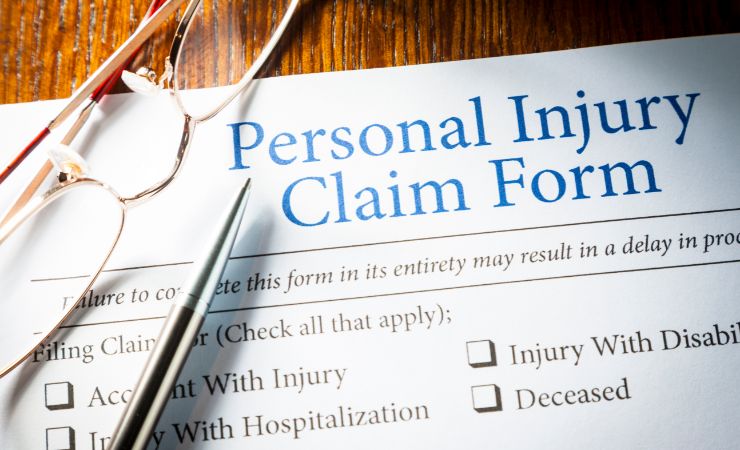Texas Personal Injury Statute of Limitations – All You Need to Know
A personal injury occurs whenever one party’s actions result in physical injuries and/or economic losses to another party. This type of incident can occur in many ways, from motor vehicle accidents to slip and fall accidents due to negligent property management. If you or a loved one was injured due to any other party’s actions in Texas, you should know the legal statutes that will come into play as you pursue compensation.
A personal injury claim is a type of civil suit that seeks compensation to make the plaintiff “whole” again after a personal injury. The plaintiff has the right to claim economic compensation for financial losses such as medical expenses, property damage, and lost income from missed time at work. They also have the right to claim non-economic damages, specifically the pain and suffering they experienced due to the defendant’s actions. However, to secure this compensation, the plaintiff has to meet the statute of limitations or time limit for filing their personal injury claim.
In Texas, the statute of limitations for personal injury claims is two years. This time limit starts on the date a personal injury occurs. It may also start on the date of discovery if the cause of a personal injury is not immediately determinable. For example, if the plaintiff’s harm does not noticeably manifest for some time after another party has caused them harm, their statute of limitations would begin whenever they discovered they were harmed by another party’s actions.
What You Can Expect in a Personal Injury Claim
The sooner you file your personal injury claim, the easier it is for you to meet the statute of limitations and ensure your claim proceeds unimpeded by legal red tape. Additionally, if your case requires any witness testimony and/or physical evidence, you can recover more quickly if you file your claim without delay after your injury.
When you have an experienced personal injury attorney representing you, it is much easier to meet the procedural demands of your case. A Texas personal injury attorney will determine all the types of compensation you can claim from the defendant and guide you through the process of holding the defendant accountable for their negligence or misconduct.
Most personal injury claims are resolved through settlement, which is a private negotiation process that allows both parties to avoid the stress and expense of prolonged litigation. However, settlement required both parties to be willing to compromise. If they cannot, or if either party refuses to engage in settlement negotiations for any reason, the case must be resolved in court. In this situation, the judge overseeing the case has the final say regarding liability for the plaintiff’s damages and their total case award.
FAQs About Texas Personal Injury Statute of Limitations
When Should I Consult a Texas Personal Injury Attorney?
If any other party has injured you, it is best to address your immediate medical needs and then reach out to trustworthy legal counsel as soon as your condition stabilizes. Success with your personal injury claim may require a combination of witness testimony and physical evidence, both of which will be fresher and more reliable if you secure them right away after the event that caused your injury.
What Happens If a Personal Injury Is Fatal in Texas?
In the event that your family has lost a loved one due to another party’s negligent or illegal action, you have the right to file a wrongful death suit in lieu of the personal injury claim the victim could have filed if they had survived. A wrongful death claim seeks money for the surviving family’s losses, such as lost financial support provided by the deceased, pain and suffering, and funeral and burial expenses.
How Long Does It Take to Settle a Personal Injury Claim?
The time your case could require to complete hinges on the scope and severity of the losses you suffered and whether the defendant responsible is willing to accept liability for the results of their actions. It generally behooves the defendant to settle a personal injury case quickly, but it is possible for the defendant in your case to deny liability and refuse settlement. As a result, litigation might take months to more than a year to complete. Your personal injury attorney can estimate how long it may take to complete your personal injury proceedings.
How Do You Prove Negligence in a Personal Injury Claim?
There are four elements of negligence a plaintiff must prove to succeed with their personal injury case in Texas:
- Duty of care, meaning the defendant owed the plaintiff a responsibility to act with reasonable care in the situation in question.
- Breach, meaning the defendant failed to meet their duty of care for the situation in question.
- Damage, meaning the defendant caused actual harm to the plaintiff with their actions.
- Causation, which is a clear link between the defendant’s breach of duty and the plaintiff’s claimed losses.
Your personal injury attorney can help you effectively leverage the evidence and testimony available to firmly establish these four elements of negligence.
Can a Defendant Be Imprisoned for a Personal Injury They Caused?
If a personal injury results from negligence, the defendant is likely to face a civil suit and financial responsibility for the victim’s damages, but they are unlikely to face criminal charges. However, if they caused the injury through any intentional misconduct or criminal activity, the state may press criminal charges against them. In addition, penalties for certain offenses automatically increase when a defendant has caused bodily harm or death with their actions.
The attorneys at Stevenson & Murray have extensive personal injury experience, and throughout the years of our firm’s operation, we have guided many past clients through some of the most challenging personal injury claims. If it’s time to learn more about your rights and legal options for recovering from a personal injury, we are here to assist you. Contact us today to schedule a meeting with a Texas personal injury attorney.

Get Help Today
Request a Free Consultation
"*" indicates required fields


